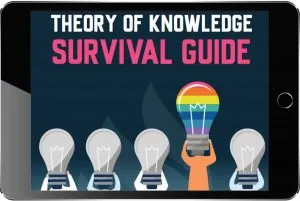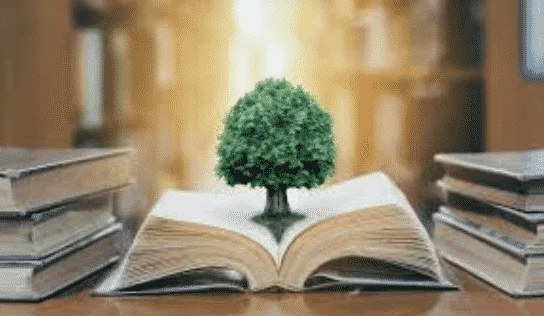Looking for the 20/21 titles? Click here!
Does anyone else also have a sense of dread when it comes to writing the TOK essay? How are we supposed to write an essay when we don’t even know what it is we’ve been talking about in TOK over the last year? To make matters worse, everyone is saying this year’s prescribed titles are some of the most difficult EVER! Luckily, over the next 2 weeks, we’ll break down the TOK essay titles to give you some ideas for the essay!
“Others have seen what is and asked why. I have seen what could be and asked why not” (Pablo Picasso). Explore this distinction with reference to two areas of knowledge.
This question is exploring the different methods of acquiring knowledge and whether new, useful knowledge is best acquired by asking “why?” or “why not?”. Defining and explaining the difference/distinction between these two seemingly related questions will be key for substantive analysis into this quote.
Despite seeming open-ended, this title becomes easier to explore when viewing it through the lens of our areas of knowledge. Naturally, as this is a Picasso quote, considering the quote with regards to art as an area of knowledge may be valuable. Would great artists have created the masterpieces of today if they had questioned their purpose in producing the art instead of questioning ‘why not’? Explore this with reference to a few examples.
To contrast, one could consider religious knowledge systems as an area of knowledge. Would religion be the same if thinkers purely asked ‘why’ things are the way they are, or was it asking ‘why not’ that developed major belief systems into what they now are?
A potential structure for this essay could be:
- Examining how asking ‘why?’ may have allowed for the acquisition of new knowledge in your first area of knowledge.
- Contrast with how asking ‘why not?’ has led to the acquisition of different knowledge within that area of knowledge.
- Explore if there is a difference in validity or quantity between the knowledge acquired through these different questions.
- Repeat this analysis for the second AoK and consider if the same conclusion holds true for both AoK’s.
Need some more help with TOK? Click above for our free guide!
“There is a sharp line between describing something and offering an explanation of it.” To what extent do you agree with this claim?
An essential part in considering the gravity of this claim is detailing what can be defined as a ‘sharp line’. Clearly there is a difference between a description and an explanation, but is there anything that we can pinpoint which clearly marks something as one or the other? If so, there may be a sharp line, if not, perhaps the distinction is more subjective.
It may be interesting to explore this claim both from the point of view of the person doing the describing/explaining, and also from the point of view of the person acquiring the new knowledge.
To consider the difference in describing/explaining from the ‘explainer’ one may place it in context of one of the natural sciences as an area of knowledge. For example, when conducting an experiment, a description of the process/outcome is quite different from an explanation of why that outcome takes place. The first implies observation without implied understanding, whereas the second requires a true understanding of the science at work. How sharp is this line?
Is the difference between describing and explaining also sharp when considering it from the point of view of the learner? Is this where the difference between a description and explanation becomes blurred? Or is there some characteristic that can be pinpointed to clearly define a statement as a description versus explanation? Try exploring this with regards to mathematics as an area of knowledge (theorem vs. proof).
Does it matter that your personal circumstances influence how seriously your knowledge is taken?
There is a mountain of information to unpack in the final of the three TOK essay titles. In order to deeply delve into this title, we need to:
1) define what personal circumstances are
2) consider why it is assumed that personal circumstances affects how seriously your knowledge is taken
3) (most importantly) discuss if this matters
One way of approaching this question is writing about the notion of biased perspectives and biased knowledge. Biases are personal circumstances that shape the way in which we see and perceive knowledge. Naturally, we as knowers take information from famously biased people, organisations, or news sources less seriously than ones in which we believe bias has not affected the information. This explains why the claim that ‘personal circumstances affects how seriously your knowledge is taken’ is already taken as a given in the question.
The next question becomes if it matters that we assign less credibility to information/knowledge that deem to have been affected by personal circumstances (biases). Do we instantly accept certain knowledge as truth if the personal circumstances of the source of the knowledge align with your own personal circumstances? Shall we dismiss other knowledge, which may hold the same validity, simply because an individual’s personal circumstances cloud our judgement of the knowledge produced by that individual? Does this lead to us becoming more ignorant as knowers? What repercussions/consequences does this haven in society? Can you relate this to another area of knowledge (history) and explore if this has always been the case?
So there we have it, three of this year’s TOK essay titles broken down! How are you feeling about the TOK presentation? Click here to read about 20 ideas you could present!
Breaking down the TOK titles part 2!




